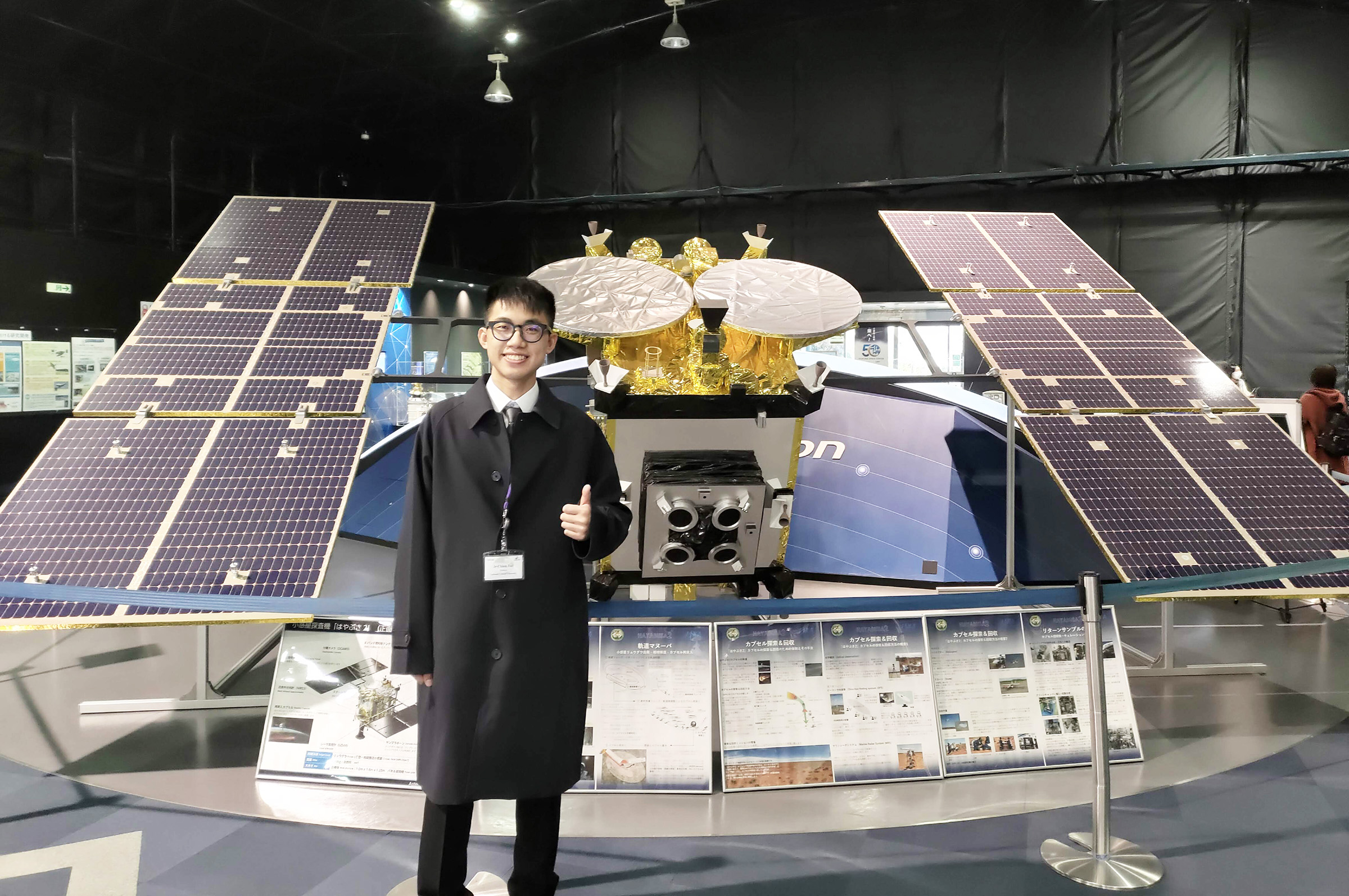Headlines

The Asia-Pacific Regional Space Agency Forum (APRSAF) initiated the Asian Beneficial Collaboration in many aspects. “Asian Try Zero-G 2022” is one of the collaborative projects through which the APRSAF invited young people to propose some simple space experiments. “The Water Vortex in a Zero-Gravity Condition,”proposed by NCU student Tsai Jr-Chiun, passed the domestic preliminary selection by the Taiwan Space Agency (TASA). The proposal was further sent to the Japan Aerospace Exploration Agency (JAXA) for international final selection. Tsai’s experimental theme stood out and was elected as the representative of Taiwan. “Originally, I simply wanted to practice my English writing so I took part in the contest,” said Tsai Jr-Chiun. Yet Tsai accidentally found that no one has ever conducted any experiments related to the vortex in outer space; therefore, he decided to conduct three experiments focusing on the vortex in a zero-gravity environment. Tsai proposes that as we spin water in a bottle on earth by force, a vortex will thus occur; however, will the vortex be generated if the water in a bottle is rotated in a zero-gravity environment? Tsai predicts that when the bottle is held upright and is rotated around its vertical axis in a zero-gravity environment, the rotation will generate a centripetal force and the water in the bottle will stick to the sides of the bottle; the vortex in a microgravity environment will turn into a hollow tube. However, if the bottle is held sideways and is rotated around its horizontal axis in a zero-gravity environment, the water will move toward both ends of the bottle, and there will be a huge bubble in the middle of the bottle. Both experimental results confirmed Tsai’s theoretical predictions. In his freshman year, Tsai wished to research more aerospace-related topics by joining contests; therefore, he registered for the space experiment project “Asian Try Zero-G 2022.” Thanks to his zero-gravity experiment, Tsai was thus invited to attend the APRSAF. “I hope to work more on satellite engineering, expand my comfort zone, and explore any possibilities!” said Tsai.
